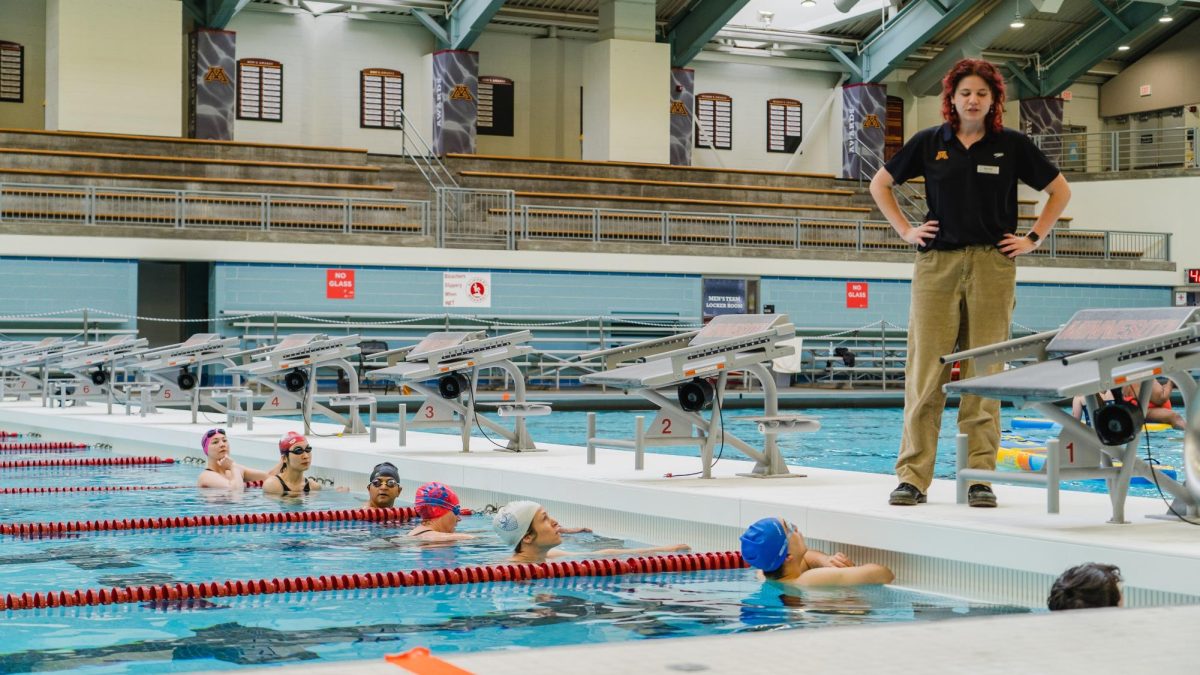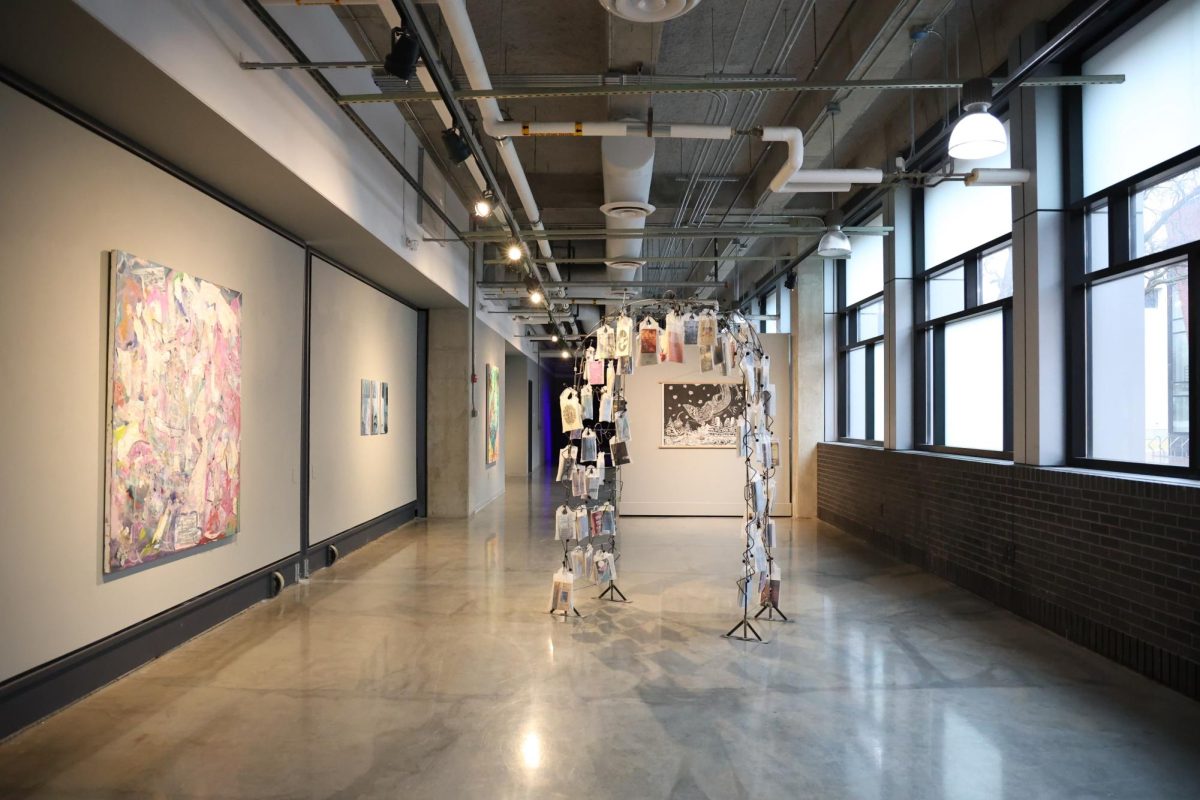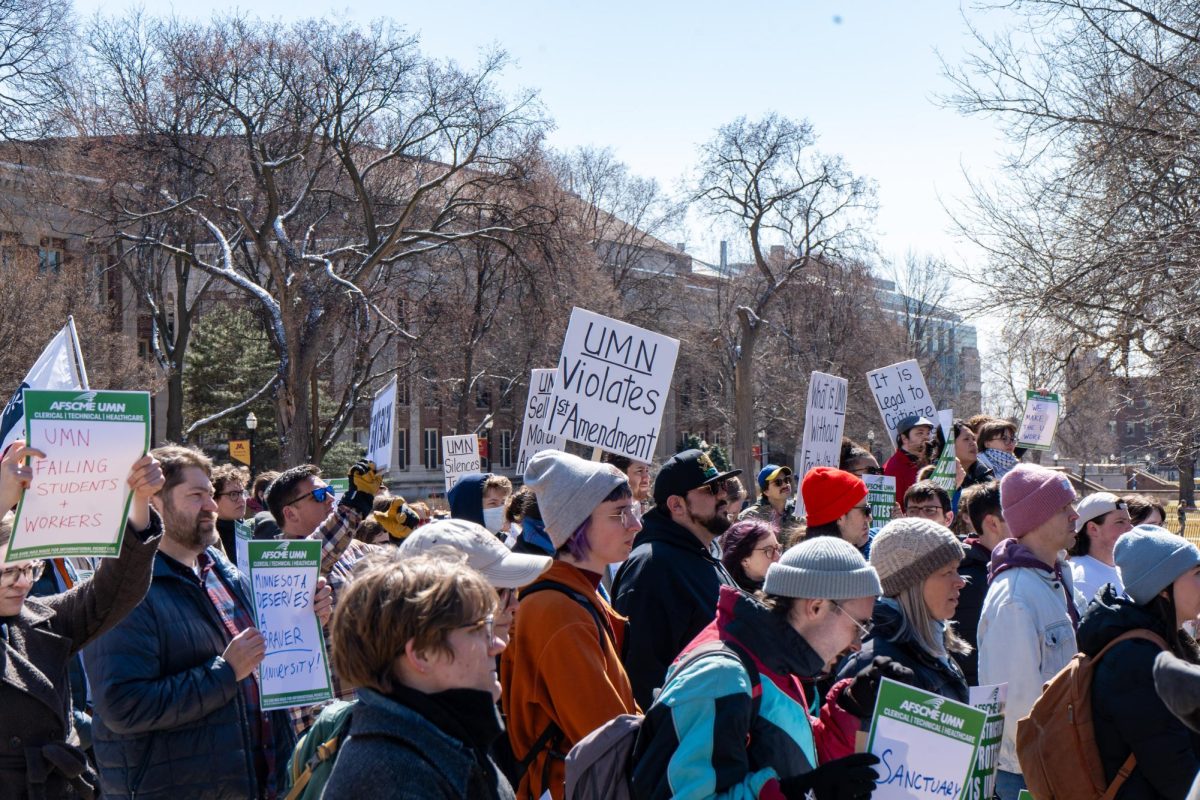On Dec. 8, after nearly 54 years in power and 13 years of war, the Syrian civil war came to an end. And with it, the fall of the Assad family’s rule.
For many Syrian students who call the University of Minnesota home, this moment carried a lot of personal and cultural significance. Some students spoke out after the regime ended. They talked about their hope for the future and reflected on their experiences.
On Monday, Syrian President Bashar al-Assad fled the country after an armed rebel alliance charged across the country over 11 days.
The Syrian civil war has internally displaced 7.2 million people since 2011 while forcing 6.4 million Syrians to flee abroad as refugees.
Third-year student Raed Alobeid was born in Homs, Syria and lived there until 2012. Alobeid’s family fled Syria in 2012 due to the civil war and the constant bombings and airstrikes taking place in his neighborhood in Homs. Alobeid said there were many moments when he and his family were in the middle of bombings in his neighborhood.
“I remember those times because I was too scared to sleep,” Alobeid said. “I thought, ‘What if I sleep and never wake up again?’ That was the thought that was going through my head as an eight-year-old.”
Alobeid said his family found asylum in the country of Jordan, where they stayed for three and a half years before coming to the U.S. as refugees in 2015.
When Alobeid first heard of the news of Assad fleeing and the rebels gaining control of Syria, he said it was just surreal. He added his dad described it as the happiest day of his life.
“I was in shock of how quickly it unfolded and everything,” Alobeid said. “My family was very happy, I was very happy, but at the same time, there’s still a lot to work on.”
Alobeid said for him, the Assad regime represented dictatorship and a lack of freedom for Syrians, and he remains optimistic for the future of Syria.
“I’m really hoping to see a democratic regime in the future, hopefully having a place where people actually have an area to speak, an area to speak up, no matter who’s in charge,” Alobeid said.
Alobeid said he never thought he would have the chance to go back home to Syria, but now that it is a possibility, he wants to return as soon as he can.
“It’s just very, very, very shocking, like I actually get to go back to walk down my neighborhood where I grew up in, where I was born,” Alobeid said. “The neighborhood was just filled with all my family, like my uncles, my aunts, both my grandparents. It was a full neighborhood, just our family. So just getting to go back, just seeing the neighborhood again.”
Second-year student Lolia Jarouj grew up in Damascus, Syria and immigrated to the U.S. in 2014.
Jarouj said a lot of her family was displaced due to the war.
“During Ramadan, we would just be having Iftar and the sounds of rockets would just be a normal part of life, like you would have to distinguish between the cannons and the rockets,” Jarouj said. “The cannons that were telling you it’s Iftar and the rockets just kind of blended into normal life, and you just tried to just hold on to contact with family.”
Jarouj said hearing news of the regime’s fall was crazy. She added there were a lot of calls with family and friends in Syria that night.
Jarouj said waking up and hearing that Assad was overthrown gave her and her family hope for the future.
“There was a lot of hope, because, of course, we don’t want Bashar al-Assad,” Jarouj said.
Jarouj said she wants the University campus community to know that Syrians are more than just a people at war.
Syria is beautiful and not enough people know just how rich its culture is, Jarouj said.
“I would say war has sort of trickled its way into our culture, like in a lot of small ways, but it’s definitely not who we are as Syrians,” Jarouj said. “We’re some of the most respectful people. We have such respect for all kinds of people. I would say this is because Syria was built on such a diverse history and such a diverse people.”
First-year student Ibrahim Ismail’s family is from Aleppo, Syria. Ismail was born in the U.S. and did not visit Syria until last summer.
Ismail said he felt a sense of relief now that the Assad regime was over. He added he felt a sense of patriotism seeing the Syrian rebels storm the capital.
“I felt like, for the first time in my life, I felt a real sense of patriotism for my country, like yeah, that’s my country, that’s Syria, that’s where I’m from,” Ismail said. “It made me happy because all this time it’s been under the Assad regime for 54 years.”
Ismail said he hopes Assad never comes back and the country can start building towards a new Syria.
“I’m hoping that there’s some serious people that are like, okay, we gotta start over, and we gotta do it right this time,” Ismail said. “I hope we get a new government, something truly democratic, and a new system that would prevent something like this happening ever again.”












